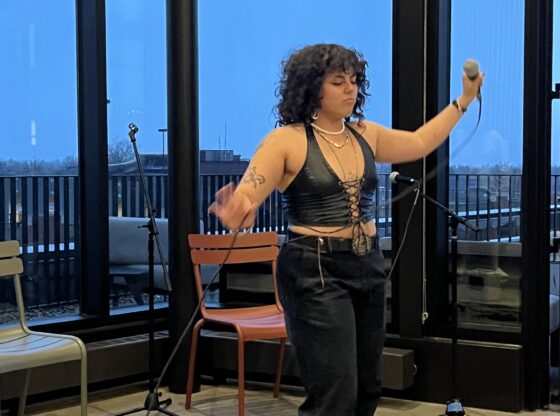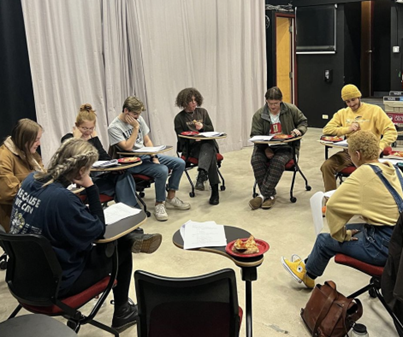“I Never Learn,” the third album in a series by Swedish vocalist Lykke Li, challenges what it means to be in love. Beautiful, semi-tragic and thought-provoking, this album is the third of a trilogy of albums.
“Youth Novels,” “Wounded Rhymes,” and now “I Never Learn” is the evidence of five years of artistic development. In a recent interview about the album, Li discussed the mature themes of love and loss, stating, “It’s always about me and the guilt and shame and the hurt and the pride and the confusion of being a woman.”
The most prominent example of the vocal emphasis in this album presents itself in “Love Me Like I’m Not Made of Stone.” The acoustic guitar, softly strummed in the background, is the only barrier between the listener and lyrics. This creates an intimate feeling in the song, in which it feels like the listener is right there with her. The atmospheric quality of the song and the sadness of the singer’s simple utterances prove Li’s soft, ache-y style is here to stay.
Lyrics like “Even though it hurts / Love me like I’m not made of stone / Devil’s hand across my heart / As we dance through the dark / Go ahead love me deep until you can’t,” tell of the emotional and physical challenges of a mature love. Taking the risk to love someone, Li thinks, must surely be worth it. Accepting the flaws of another person, realizing who they are and loving them anyway, is part of the growing process—and we should love them no matter how badly it hurts.
In “No Rest for the Wicked,” the soft piano intro and demonstration of Li’s vocal range transform this song into an almost theatrical number. This is Li’s first-love-lost song, and it comes across in every one of the lyrics. “There’s no hope for the weary / You let them win without a fight,” croons Li, asking us all to “Hold on a little longer / Don’t let them get away.” Her depression comes through clearly, but despite the song’s dark meaning, it is far from what fans have heard from Li in the past.
Themes of lost love and romance are usual, but this song goes above and beyond in the overall schema. This song is styled differently than the two previous albums, but Li’s voice is still the highlight, and the chorus is the kind of entrancing magic that holds audience interest. The background piano is haunting, melodic and almost hollow—the kind of muted, ethereal noise that allows for Li’s vocal edginess to be the true focus. But where this song truly shines is in taking the sadness of a lost love and transforming it into a kind of amazing, quietly understated remembrance.
And perhaps the most emotionally charged song on the album, “Gunshot,” will remind you what heartbreak feels and sounds like. “Gunshot,” which some have connected to the introduction of Madonna’s “Like a Virgin,” is Li’s antithesis to the slowed-down “Love Me Like I’m Not Made of Stone.” It’s easy to connect to the drum and guitar in the back, perfectly timed with the agonizing sentimentality of Li’s voice: “I was dreaming about you honey / I was hoping you’d take me / And the shot goes through my head and back / Gunshot, I can’t take it back.” Her angst and frustration over the break-up are as translucent as this song’s highs and lows collide.
Fans of Lykke Li will view this album as a move away from “Youth Novels” and “Wounded Rhymes,” but in the best possible way. The themes of this trilogy, break-ups, heartbreak and emotional longing, are still present, but the actual styling of the songs are reminiscent of the growth and experiences that have brought Li to this point since 2008.











